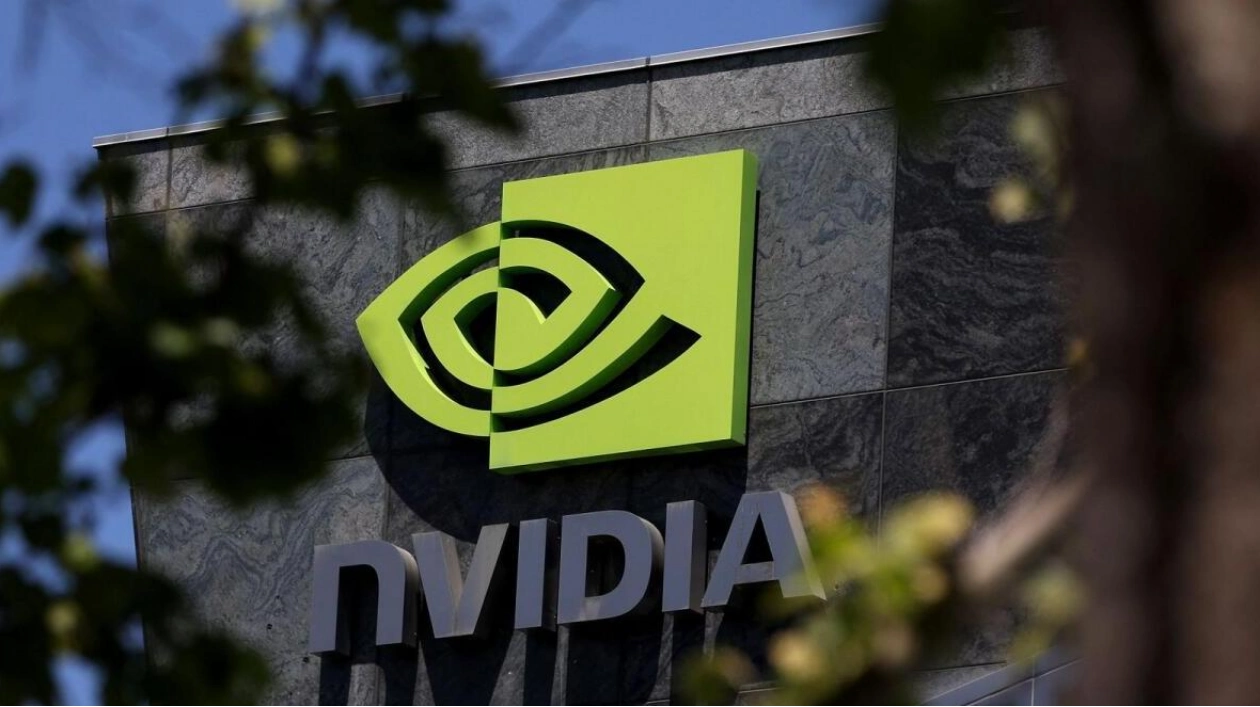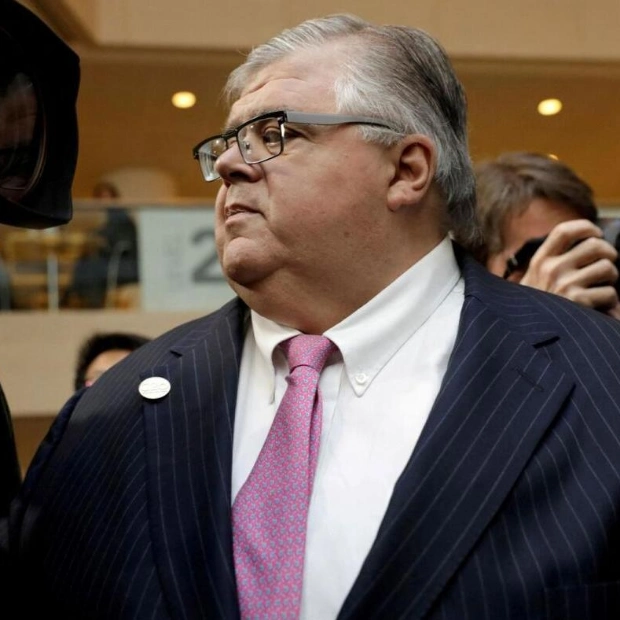On Tuesday, Nvidia ascended to the pinnacle of global corporate value, surpassing tech titan Microsoft, as its advanced processors are pivotal in the race to lead in artificial intelligence technology. The chipmaker's shares rose by 3.5% to $135.58, pushing its market capitalization to $3.335 trillion, shortly after it leapfrogged Apple to claim the second spot in market value. Microsoft's market value stood at $3.317 trillion as its shares dipped by 0.45%. Apple's stock declined by over 1%, settling at a value of $3.286 trillion. Nvidia's meteoric rise in market value over the past year has epitomized Wall Street's exuberance over emerging AI technology. Despite Nvidia's surge contributing to record highs for the S&P 500 and Nasdaq, some investors are concerned that excessive optimism about AI could wane if there are indications of a slowdown in technology spending. 'It's Nvidia's market; we're all just trading in it,' remarked Steve Sosnick, chief market strategist at Interactive Brokers. Nvidia has also emerged as the most actively traded company on Wall Street, with daily trading volumes averaging $50 billion, significantly higher than the $10 billion each for Apple, Microsoft, and Tesla, according to LSEG data. The chipmaker now represents approximately 16% of all trading in S&P 500 companies. Nvidia's stock has almost tripled this year, far outpacing Microsoft's 19% increase, driven by overwhelming demand for its high-end processors. Tech behemoths like Microsoft, Meta Platforms, and Alphabet, the parent company of Google, are vying to enhance their AI computing capabilities and integrate the technology into their offerings. The relentless demand for Nvidia's AI processors, which are considered superior to competitors', has resulted in tight supplies, leading many investors to view Nvidia as the primary beneficiary of the AI boom. 'Nvidia has received considerable positive attention and has executed well, but a minor misstep could trigger a significant stock correction, and investors should exercise caution,' advised Oliver Pursche, senior vice president at Wealthspire Advisors in New York. Tuesday's gains propelled Nvidia's stock to an all-time high, adding over $110 billion to its market capitalization, equivalent to the entire value of Lockheed Martin. The company's market value surged from $1 trillion to $2 trillion in just nine months by February and reached $3 trillion in just over three months in June. Since its impressive forecast a year ago, Nvidia has consistently exceeded Wall Street's high expectations for revenue and profit, with demand for its graphics processors greatly exceeding supply as businesses hasten to incorporate AI applications. Nvidia's executives indicated in May that demand for its Blackwell AI chips could outstrip supply 'well into next year.' Rapid increases in analysts' earnings expectations for Nvidia have outpaced its stock's remarkable gains, leading to a decline in the stock's earnings valuation. Nvidia recently traded at 44 times expected earnings, down from over 84 a year ago, according to LSEG data. To enhance its stock's appeal to individual investors, Nvidia last week executed a 10-for-one stock split.

Text: Lara Palmer
19.06.2024
Chipmaker's AI Dominance Fuels Record Market Value, Overtaking Tech Giants





